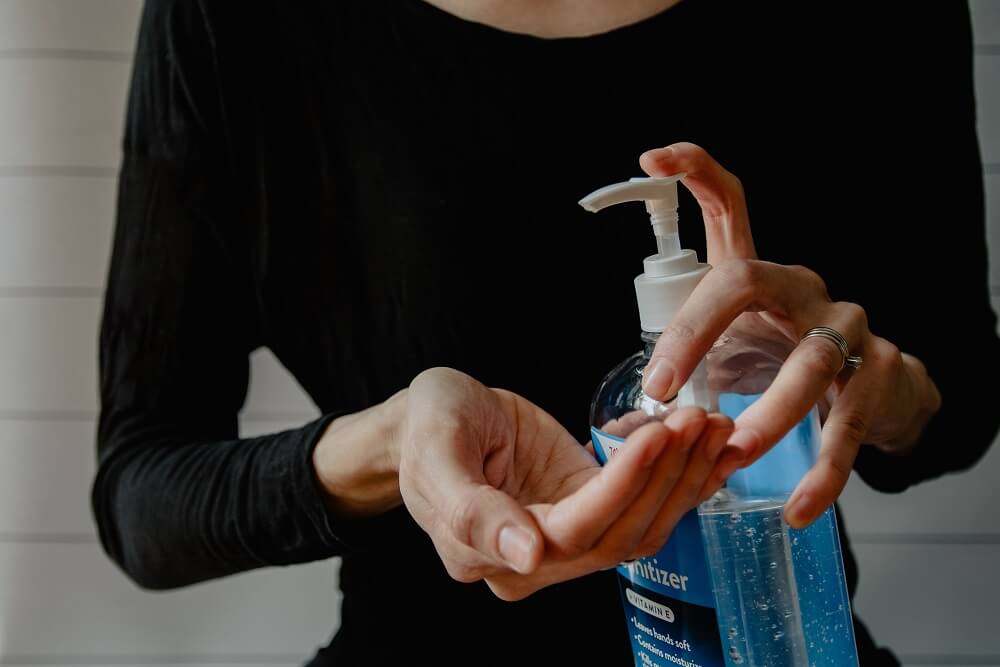Guideline on Covid-19 Symptoms and Protection
It would take time for the people to develop immunity to tackle the coronavirus whereas the vaccine may be many months away. Best response is to voluntarily abide by the Covid-19 guidelines put forward by experts.

COVID 19 is a highly contagious respiratory disease that spreads from person to person when they are in close contact usually via droplets produced when an infected person coughs, sneezes or talks. These droplets land in the mouths or noses of people nearby or can be inhaled into their lungs.
Many people incorrectly equal Covid-19 with the flu. However, Covid-19 poses a considerably greater threat than flu for several reasons.
- Both viruses are transmitted in the same way and can cause similar symptoms. However, the novel coronavirus seems to be more contagious.
- A person infected with the flu infects an average of 1.3 other persons whereas a coronavirus infected person can transmit to 2-3 others
Incubation period is shorter for the flu allowing people to know earlier about their sickness and hence to stay away from others whereas with coronavirus a person can be infected and walk around for weeks without knowing and transmitting the virus all the time. Thus, it is immensely important to follow the Covid-19 guidelines.
The statistics indicate that the proportion of deaths from coronavirus and flu stands at 740 to 330 implying more deaths from coronavirus when compared to the flu. The vaccine usually available to the Americans for the flu helps to reduce the number of deaths and the severity of the illness.
Have you developed the Covid-19 Symptoms?
Symptoms of Covid-19
The majority of people will exhibit no or minimal symptoms, but a small subset will develop severe respiratory illness. Most common symptoms are similar to other respiratory viruses including fever, cough and difficulty in breathing.
Symptoms may appear 2 to 14 days after exposure and range from mild to severe illness. These patients may need to be admitted to the hospital, some of them may need to be in the intensive care unit.
Common symptoms include
- Cough
- Fever
- Loss of appetite
- Body aches and muscle pains
- Poor Shortness of breath
Less common symptoms include
- Headache
- Chills with shaking
- Loss of smell and taste
- Loss of smell and taste
In severe cases some patients may develop hypoxia (drop in oxygen levels) requiring admission to hospital or the Intensive care unit.
In a healthy lung air (and oxygen) travel down the bronchi (airways) to small air sacs called alveoli. Oxygen then travels across the walls of these alveoli which are very thin to small blood vessels to oxygenate the blood.
The virus may cause damage to these alveoli or the blood vessels resulting in the inability of the lungs to provide adequate oxygen to the body. In that case supplemental oxygen needs to be given usually through a mask around the nose – in the more severe cases patients may need to be placed on a ventilator (breathing Machine) for a period of time.
People with existing health conditions involving severe illnesses are most vulnerable and usually exhibit most of the symptoms. However, even those with no symptoms often carry the virus and cause to spread it. It is also possible to get infected by touching mouth, nose or eyes after coming in contact with the contaminated surfaces.
Elderly Individuals or those with chronic illness such as asthma or COPD are more at risk of developing more severe illness if they do contract COVID-19.
Protection Against COVID-19
- Wash hands often for at least 20 seconds especially if in public or after coughing or sneezing. Avoid touching nose mouth or eyes until hands are washed.
- Avoid close contact with people who are sick remembering the infected individuals may exhibit no symptoms and still spread the virus.
- Cover mouth and nose with a mask when you go out. This is meant to protect other people in case you are infected. You could still the virus to others even if you are not sick – wearing a mask is not a substitute for social distancing and hand washing.
- If not wearing a mask in a private setting remember to cover your mouth and nose when you cough or sneeze and immediately wash hands.
- Clean and disinfect frequently touched surfaces.
- Stop smoking: smokers are considered a high-risk group for development of severe illness from COVID-19 as smoking and vaping leaves the lungs tissues inflamed and susceptible to infection.
Seek advice from a healthcare expert
The fight against Covid-19 requires a collective response from people. Enforced lockdowns may help slow down the spread but these steps may also cause distress particularly amongst the people whose jobs and business are adversely impacted. It would take time for the people to develop immunity to tackle the coronavirus whereas the vaccine may be many months away.
Thus, the best response would be voluntarily abiding by the recommendations put forward by the healthcare experts. Be sure to follow the Covid-19 guidelines for protection against the novel coronavirus and consult the healthcare providers in case symptoms start to appear.





